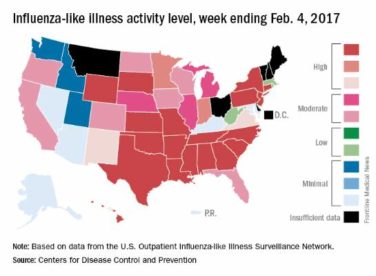FROM JAMA INTERNAL MEDICINE
Doctors who accepted a single, industry-sponsored meal worth less than $20 were significantly more likely to prescribe the featured drug to Medicare patients, based on data from a cross-sectional study of 279,669 physicians. The findings were published online June 20 in JAMA Internal Medicine (JAMA Intern. Med. 2016 Jun. doi: 10.1001/jamainternmed.2016.2765).
In a multivariate analysis, physicians who received a single meal related to the promoted drug were 1.8 times more likely to prescribe rosuvastatin than other statins, 1.7 times more likely to prescribe nebivolol than other beta-blockers, 1.5 times more likely to prescribe olmesartan than other ACE inhibitors or ARBs, and more than twice as likely to prescribe desvenlafaxine than other SSRIs and serotonin norepinephrine reuptake inhibitors (odds ratio, 2.18).
These differences remained significant after controlling for factors including prescribing volume, physician specialty, practice setting, and demographics. Prescribing rates increased with additional meals and more expensive meals.
Previous studies have identified associations between increased prescribing and industry payments to physicians, wrote Colette DeJong , a research fellow at the University of California, San Francisco, Center for Healthcare Value, and her colleagues. However, “It is not known whether much smaller payments, such as sponsored meals, are associated with increased prescribing of the promoted brand-name drug over therapeutic alternatives,” they noted.
The researchers reviewed data from the federal Open Payments program from Aug. 1 through Dec. 31, 2013, as well as Medicare Part D prescribing data for 2013.
The results were limited by the cross-sectional nature of the study and the limitations of data from the Open Payments program, and the data reflect an association, not a cause-and-effect relationship, the researchers noted. However, “Our results are consistent with recent analyses that linked federal or state-level physician payment records with Medicare Part D prescribing data,” and with smaller studies, they said. “Future research could compare industry-sponsored meals and other methods for disseminating drug information, such as academic detailing and independent drug bulletins, with respect to the cost and quality of prescribing,” they added. The researchers had no financial conflicts to disclose.
Read the full study here: http://archinte.jamanetwork.com/article.aspx?doi=10.1001/jamainternmed.2016.2765 .





